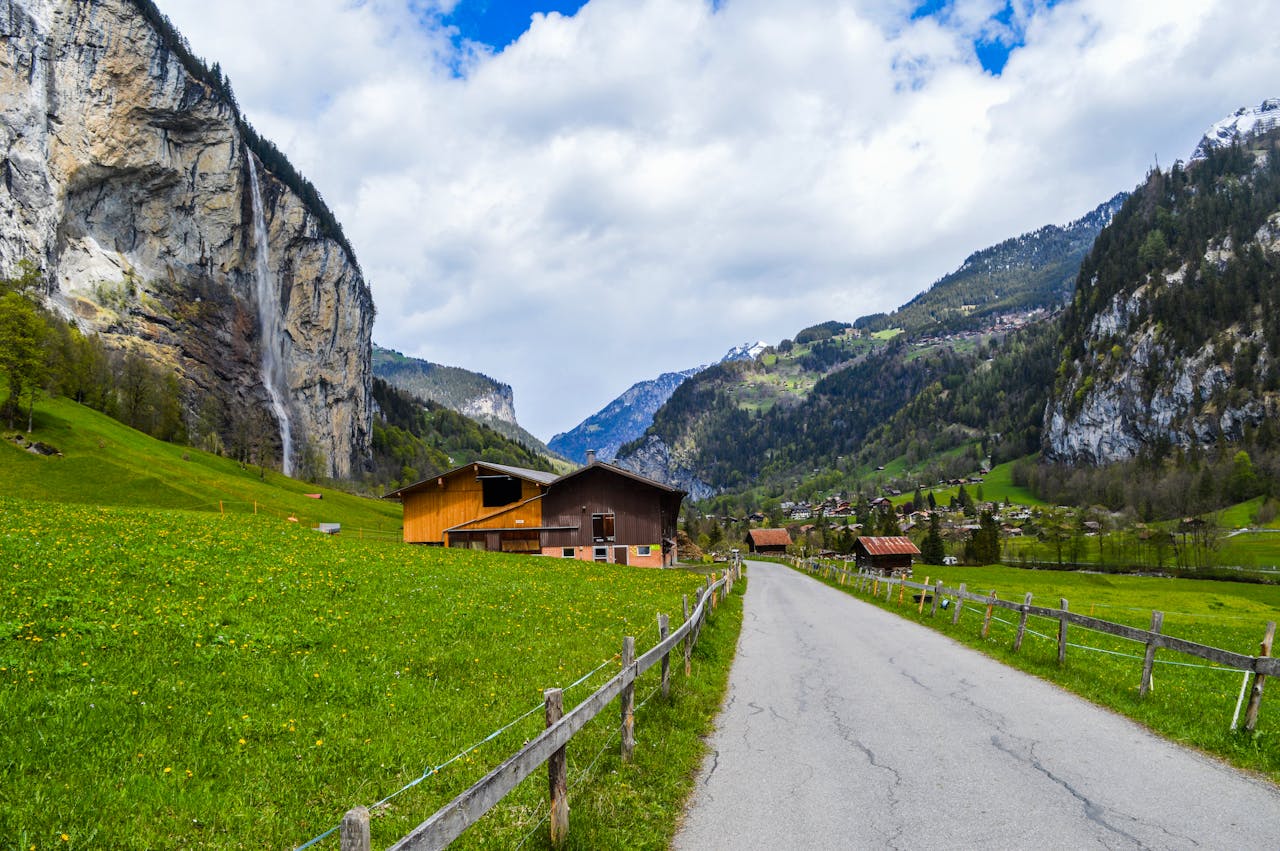What is Ye Olde Swiss Cottage at Swiss Cottage?
The “Ye Olde Swiss Cottage” is the pub that gave the whole Swiss Cottage area of north-west London its name.
Here’s the story:
- The original building was erected around 1804, styled like a rustic Swiss chalet. At that time, Regent’s Park was being laid out and the Finchley Road was becoming a main coaching route.
- It was opened as a coaching inn and tavern, and the chalet style was chosen as a novelty to attract travellers – it looked exotic compared to the usual brick pubs of the day.
- The inn became a local landmark. Locals and travellers started calling the surrounding junction “the Swiss Cottage” after it, and the name stuck.
- The original “Ye Olde Swiss Cottage” pub still stands there (rebuilt and altered over the years, but still recognisably chalet-style), at the corner of Finchley Road and Avenue Road.
- The area’s tube station, built in 1939 on the Bakerloo line (now Jubilee line), also took the name Swiss Cottage.
So – Ye Olde Swiss Cottage isn’t just a pub, it’s the origin of the name for the whole district.
But Why and by Who?
Now we’re getting into the heart of it. Why a Swiss chalet, and who actually built it?
The “Why”
In the early 1800s, there was a real craze in England for the “picturesque” and exotic.”
- Swiss chalets in particular were seen as quaint, rustic, and romantic – part of the same fashion that made people build mock temples, follies, or “hermit’s caves” on country estates.
- London was pushing outward at this time, and the Finchley Road was being developed as a turnpike route for coaches. What better way to lure in thirsty, curious travellers than an inn styled after something foreign and charming?
- In short: it was a marketing gimmick. The unusual look made it a landmark and conversation piece.
The “Who”
- The cottage was built around 1804 by Regent’s Park estate developers – specifically connected to the Eyres Estate (a local landowning family who were leasing and developing the fields here).
- The Swiss-style inn was originally called The Swiss Tavern, later rebranded as “Ye Olde Swiss Cottage” as Victorian nostalgia for “olde England” took over.
- Its early operators were innkeepers catering to the new traffic along Finchley Road – coaching passengers, drovers, and day-trippers heading north out of London.
So:
- By: local landowners/developers (Eyres family estate, with builders/innkeepers running it).
- Why: to create an eye-catching, continental-style coaching inn that would draw attention in a rapidly expanding suburb.
That one bit of creative marketing ended up branding the entire district – Swiss Cottage wouldn’t exist, in name at least, without that quirky decision.
What Was it Called Before?
Before the chalet-style pub was built in 1804, there wasn’t actually a “Swiss Cottage” at all – the whole junction was just fields at the edge of Hampstead parish.
- The inn itself was originally called the Swiss Tavern when it first opened.
- Only later in the 19th century did the name shift to Ye Olde Swiss Cottage, once the area started to be developed and the pub became a landmark.
- The district around it had no special name before; people would have referred to it simply as part of Hampstead, or by the roads (Finchley New Road and Avenue Road) that crossed there.
So in short:
- Before 1804: no “Swiss Cottage” – just farmland at Hampstead’s edge.
- 1804: pub opens as the Swiss Tavern.
- Mid-19th century: popularly called “the Swiss Cottage” name spreads to the district.
- Later Victorian era: rebranded in nostalgic style as Ye Olde Swiss Cottage.
Perhaps you would you like to trace when the Swiss Tavern first appears in maps and directories – to pinpoint the moment the area shifted from farmland to a named London suburb. There are all sorts of resources around for this…

